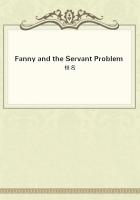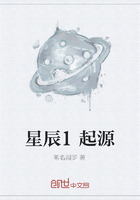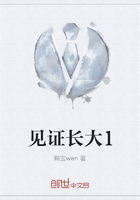Leon was fleeing, for it seemed to him that his love, that for nearly two hours now had become petrified in the church like the stones, would vanish like a vapour through that sort of truncated funnel, of oblong cage, of open chimney that rises so grotesquely from the cathedral like the extravagant attempt of some fantastic brazier.
"But where are we going?" she said.
Making no answer, he walked on with a rapid step; and Madame Bovary was already, dipping her finger in the holy water when behind them they heard a panting breath interrupted by the regular sound of a cane. Leon turned back.
"Sir!"
"What is it?"
And he recognised the beadle, holding under his arms and balancing against his stomach some twenty large sewn volumes.
They were works "which treated of the cathedral."
"Idiot!" growled Leon, rushing out of the church.
A lad was playing about the close.
"Go and get me a cab!"
The child bounded off like a ball by the Rue Quatre-Vents; then they were alone a few minutes, face to face, and a little embarrassed.
"Ah! Leon! Really--I don't know--if I ought," she whispered. Then with a more serious air, "Do you know, it is very improper--"
"How so?" replied the clerk. "It is done at Paris."
And that, as an irresistible argument, decided her.
Still the cab did not come. Leon was afraid she might go back into the church. At last the cab appeared.
"At all events, go out by the north porch," cried the beadle, who was left alone on the threshold, "so as to see the Resurrection, the Last Judgment, Paradise, King David, and the Condemned in Hell-flames."
"Where to, sir?" asked the coachman.
"Where you like," said Leon, forcing Emma into the cab.
And the lumbering machine set out. It went down the Rue Grand-Pont, crossed the Place des Arts, the Quai Napoleon, the Pont Neuf, and stopped short before the statue of Pierre Corneille.
"Go on," cried a voice that came from within.
The cab went on again, and as soon as it reached the Carrefour Lafayette, set off down-hill, and entered the station at a gallop.
"No, straight on!" cried the same voice.
The cab came out by the gate, and soon having reached the Cours, trotted quietly beneath the elm-trees. The coachman wiped his brow, put his leather hat between his knees, and drove his carriage beyond the side alley by the meadow to the margin of the waters.
It went along by the river, along the towing-path paved with sharp pebbles, and for a long while in the direction of Oyssel, beyond the isles.
But suddenly it turned with a dash across Quatremares, Sotteville, La Grande-Chaussee, the Rue d'Elbeuf, and made its third halt in front of the Jardin des Plantes.
"Get on, will you?" cried the voice more furiously.
And at once resuming its course, it passed by Saint-Sever, by the Quai'des Curandiers, the Quai aux Meules, once more over the bridge, by the Place du Champ de Mars, and behind the hospital gardens, where old men in black coats were walking in the sun along the terrace all green with ivy. It went up the Boulevard Bouvreuil, along the Boulevard Cauchoise, then the whole of Mont-Riboudet to the Deville hills.
It came back; and then, without any fixed plan or direction, wandered about at hazard. The cab was seen at Saint-Pol, at Lescure, at Mont Gargan, at La Rougue-Marc and Place du Gaillardbois; in the Rue Maladrerie, Rue Dinanderie, before Saint-Romain, Saint-Vivien, Saint-Maclou, Saint-Nicaise--in front of the Customs, at the "Vieille Tour," the "Trois Pipes," and the Monumental Cemetery. From time to time the coachman, on his box cast despairing eyes at the public-houses. He could not understand what furious desire for locomotion urged these individuals never to wish to stop. He tried to now and then, and at once exclamations of anger burst forth behind him. Then he lashed his perspiring jades afresh, but indifferent to their jolting, running up against things here and there, not caring if he did, demoralised, and almost weeping with thirst, fatigue, and depression.
And on the harbour, in the midst of the drays and casks, and in the streets, at the corners, the good folk opened large wonder-stricken eyes at this sight, so extraordinary in the provinces, a cab with blinds drawn, and which appeared thus constantly shut more closely than a tomb, and tossing about like a vessel.
Once in the middle of the day, in the open country, just as the sun beat most fiercely against the old plated lanterns, a bared hand passed beneath the small blinds of yellow canvas, and threw out some scraps of paper that scattered in the wind, and farther off lighted like white butterflies on a field of red clover all in bloom.
At about six o'clock the carriage stopped in a back street of the Beauvoisine Quarter, and a woman got out, who walked with her veil down, and without turning her head.















